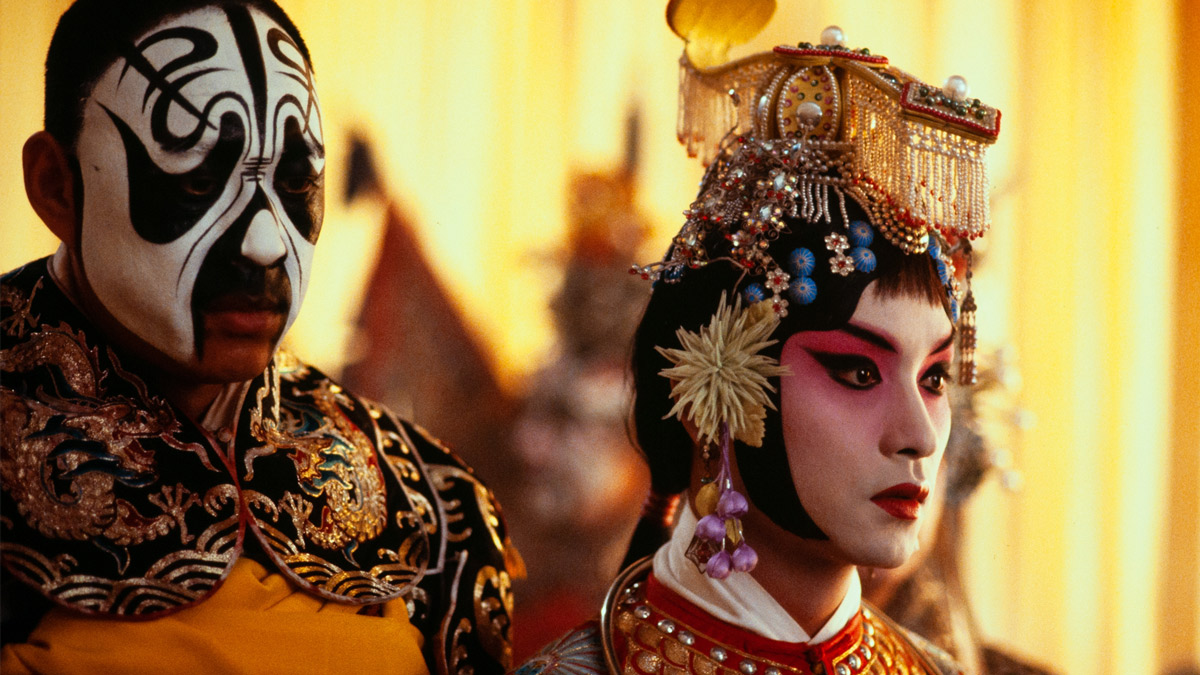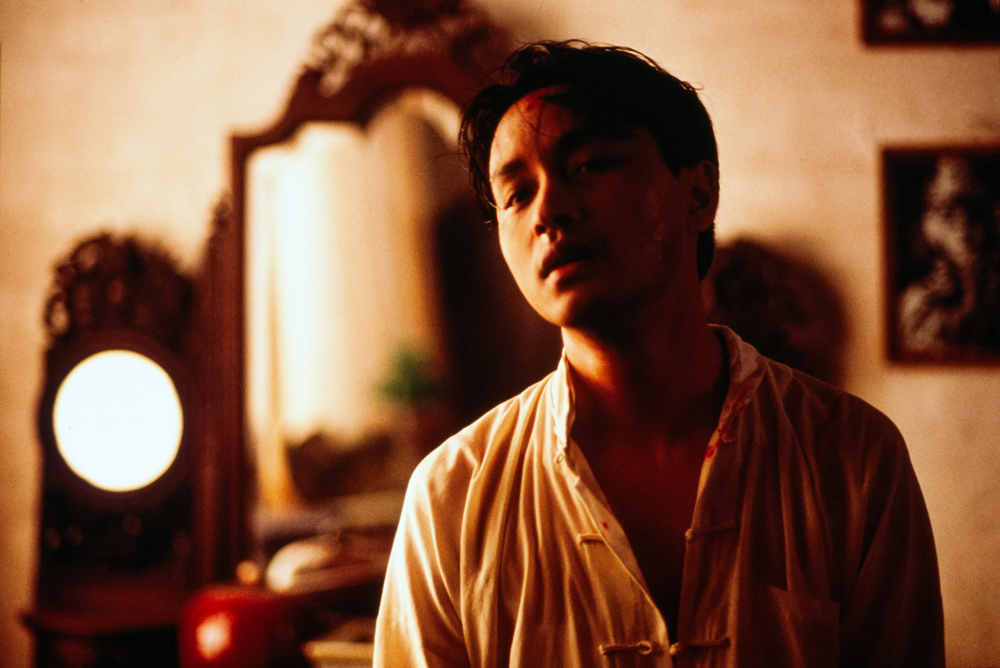
©1993 Tomson(Hong Kong) Films Co.,Ltd.
“Farewell My Concubine” Modern Chinese history and tragic love, what Chen Kaige did/didn’t draw
2023.07.26
Emotional human drama, behind the scenes of visual beauty
This movie is a tragic story in which Choi, Koro, and Kikusen are at the mercy of the flow of history. There are three layers: their personal stories, modern history, and the stories of Peking operas such as ``Captain Princess'' and ``Guifei Drunk'' performed by Choyi and Xiao Rou. Sometimes the situations they find themselves in can be expressed more eloquently by the Peking Opera that appears in the play than by the dialogue or story.
Cinematographer Gu Changwei captures the vast locations and sets, elaborate art, the facial expressions of the actors and the costumes they wear, the flickering flames, the pouring rain, and the graceful dances of Peking Opera. The scene is vividly captured. What is particularly noteworthy about this 4K screening, 30 years after its production, is the visual beauty that brings back the ``smell'' of each era that Chen Kaige has captured on screen.
On the screen, the ``power of images'' often surpasses the power of stories. Leslie Cheung's beauty and fleeting expression, who played the role of Choi, are one of them. Rather than the accumulation of words and information that make up his work, Kaiko seems to trust the emotion inherent in the medium of film/video. The approach of putting human relationships at the fore rather than modern history is probably a reflection of this idea.

“Farewell My Concubine 4K” ©1993 Tomson(Hong Kong) Films Co.,Ltd.
At the time of production in 1993, Kaiko said at a press conference upon his visit to Japan, ``I read the original work and was drawn to the relationship between the two main characters over a period of 50 years.Through the emotional relationship between these two characters, the 50 years of China's modern era can be deeply depicted.'' "It's a film about the culture, people, and society of the world." After all, what is important is the ``emotional relationship.''
However, we must not forget that behind the scenes, Kaiko himself spent his childhood and young adulthood during the Cultural Revolution, and under pressure, denounced his father, a film director, as a counter-revolutionary. Kaiko later admitted that he deeply regrets his decision at the time, and that it had a significant impact on his family's life and his own work.
When this film was made in 1993, only 15 years had passed since the end of the Cultural Revolution. Looking back now, 30 years later, there are some things that are not fully explained, but at the time there was no need for explanation, there were facts behind the work that everyone knew. The storytelling, which becomes more emotional towards the end of the film, perhaps reflects the zeitgeist of the time, as well as Kaiko's own psychology.

